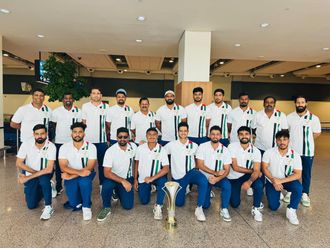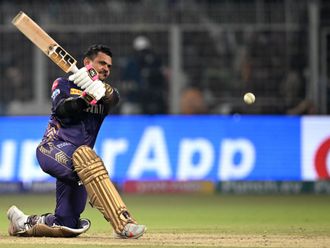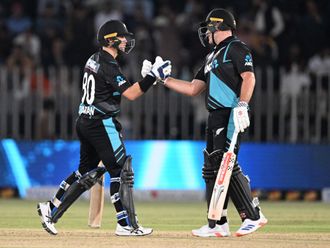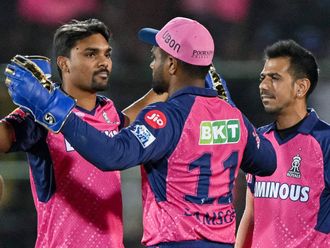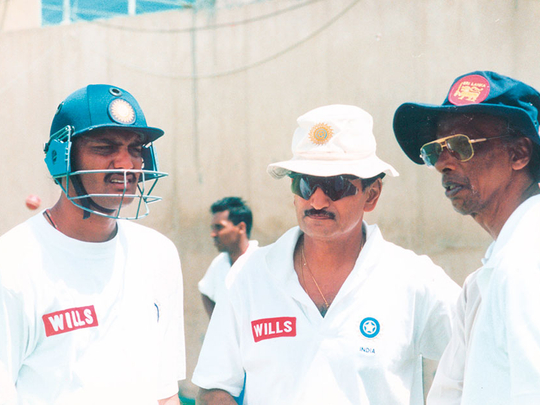
Dubai: Ajit Wadekar, who died at the age of 77 on Wednesday, is someone who could instill confidence in you even if you had only a short chat with him.
As a reporter in Mumbai, meeting Wadekar was easy. Though he retired from cricket prematurely at the age of 33, he held positions such as chairman of selection committee, coach and manager of Team India.
Unlike some cricketers, he never hesitated to talk to the media and always explained his stance and views. Hence most Mumbai journalists had access to his telephone numbers, both residence and mobile.
My first interaction with Wadekar was when mobile phones did not exist in India, and when he shared his residence phone number he had said: “If you need any clarification while writing the story, do not hesitate to call me.” Years later, when one had to wait for hours to get comments from officials and cricketers, Wadekar’s benevolence always came to my mind.
Wadekar’s greatest quality was his ability to spread positive energy. That could well be the reason why he led India to victories away from home. He made every cricketer believe that anything is possible, be it beating the mighty West Indies led by Gary Sobers in 1971, and in the same year, also beat England in England.
Years later when I asked him how he could do the impossible, his response was: “Never walk on to the field thinking your opponent is strong. All you have to bother is about the six deliveries you face and six deliveries you bowl. If you can give your best into those deliveries it does not matter whether the player opposite to you is a superstar or not.”
Wadekar believed that all that he achieved in cricket was by streamlining his thoughts from ‘impossible to possible’. He once narrated that all that he wanted at one time was to be picked for the 1971 West Indies tour, and that he had even requested then captain Mansour Ali Khan Pataudi to ensure that he was included in the team. Vijay Merchant, then India’s chief selector, who believed in Wadekar’s leadership qualities, used his casting vote as chairman of selectors and appointed him as captain for that tour in place of Pataudi. It was Wadekar’s first experience of impossible becoming possible.
When Wadekar stunned West Indies and England, many, instead of acknowledging his captaincy, said he was a lucky captain. For cricket fans it was hard to believe that Wadekar had the skill to transform a team that relied mostly on spin, into a formidable squad.
Though years later Kapil Dev went on to do the impossible by winning the World Cup in 1983 and Mahendra Singh Dhoni lifted the Twenty20 and 50 over World Cups, it was Wadekar who as captain showed the way for them to believe that India can beat any team.
Like with many cricketers, he too experienced his fall from glory. In 1974, England avenged their defeat by thrashing India 3-0, which included India being bowled out for 42 at the Lord’s Cricket Ground. Fans, who once hailed him as the lucky charm of Indian cricket, held him responsible for the debacle and that led to his premature retirement at the age of 33.
Despite the setback, Wadekar’s positivity remained, and Sachin Tendulkar benefited from it. He was Team India’s coach when Tendulkar entered international cricket. He also played a big role in Mohammad Azharuddin becoming one of India’s most successful captains, and was the team’s coach during the Cricketers Benefit Fund Series in Sharjah.
Wadekar’s autobiography “My Cricketing Years” as told to the famous cricket writer K.N. Prabhu, is a must read for youngsters in developing self-belief and positivity. It’s the tale of a captain who was gutsy but polite and as elegant as his strokes in his interaction.



